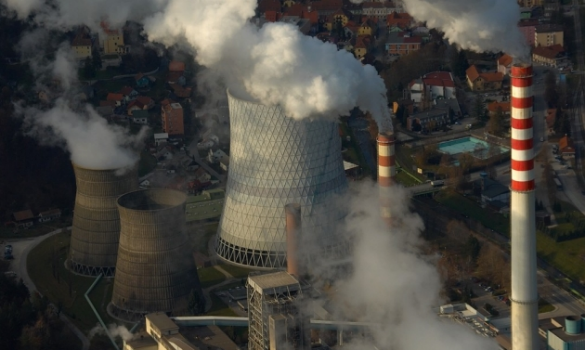
EBRD’s Draft Energy Policy continues Support for Dirty Coal
Whether you’re from Europe or the US, your tax dollars are helping them finance climate-damaging fossil fuel projects, thanks to the EBRD. But that can change.
Recently, the European Bank for Reconstruction and Development (EBRD) released a draft of its new Energy Sector Strategy, which provides a roadmap for the next five years for investment and policy initiatives in the energy sector. Although, the EBRD’s strategy claims the “Bank will promote the transition to a low-carbon model throughout the energy sector”, the strategy largely stays on course with fossil fuel development. It provides no restrictions on the development of oil, gas, or coal mining and far too little constraint on coal power plants. The lack of credible restrictions on coal is especially noteworthy as now the EBRD lags behind other international development banks, namely the World Bank and European Investment Bank.
The world of international development banks is an admittedly wonky world…but its impacts on the world are huge. The EBRD alone invests in projects in some 29 countries across Central and Eastern Europe and Central Asia.
This Bank’s stated aim in the energy sector is to foster the transition to market-oriented economies and to promote environmentally sound and sustainable development. Although the EBRD has increased investments in energy efficiency in recent years, it also continues to finance carbon-intensive development such as coal, oil and gas. From 2006 to 2011, 48 percent of the EBRD’s $8.9 billion energy portfolio went to fossil fuels, including: coal mining in Mongolia and Serbia, and coal power plants in Slovenia, Kazakhstan, and Russia.
To add insult to injury, the EBRD uses public funds provided by its member countries to invest in these dirty projects. And despite its name, the United States is the single largest contributor of public funds to the EBRD… so whether you’re from Europe or the US, your tax dollars are helping them finance climate-damaging fossil fuel projects. The EBRD’s lack of coal restrictions puts it at odds with President Obama’s newly announced Climate Action Plan, which severely restricts US support for overseas development of coal.
Providing such publicly-subsidized financing to fossil fuel projects is the opposite of what’s needed for truly sustainable development. Our governments need to stop funding the causes of climate change and start funding solutions. What’s more, such investments fail to fix market failures surrounding fossil fuel development beyond the lack of carbon pricing, such as the high environmental and public health costs associated with these polluting and carbon-intensive projects. Proper taxing of fossil fuel projects to internalize these high social costs would make most of them, particularly coal projects, uneconomical and accelerate the shift to cleaner energy sources.
If the EBRD is going to help fund the solution to climate change and not perpetuate the causes, it needs to stop providing public finance to fossil fuels. Right now, the EBRD is considering support for at least two new coal projects in Kosovo and Serbia. If the draft Energy Strategy does not change, these two coal projects will likely be funded by the EBRD as well as many other fossil fuel projects.
The EBRD must be told to stop using public funds for climate-damaging projects, starting with coal. The EBRD is accepting comments on the draft Energy Sector Strategy until September 30th.
Tell the EBRD to stop funding climate catastrophe! Add your voice here.
To see more about EBRD energy financing, go here and read more from Bankwatch.
